Remember those magical afternoons when the house belonged to you and you alone? Before helicopter parenting, before 24-hour news cycles of worst-case scenarios, before the phrase “free-range children” needed to exist? The 1970s represented perhaps the last era of truly unfettered childhood independence in America, when being home alone wasn’t cause for neighborhood alarm or potential visits from authorities. It was simply part of growing up, a rite of passage that taught us self-reliance, creativity, and yes—occasionally—how to clean up evidence of minor disasters before parents returned.
1. The Sacred Responsibility of Knowing Where the Emergency Money Was Hidden

That small stack of bills tucked inside the Betty Crocker cookbook or taped inside the utility cabinet wasn’t just money—it was your parents’ ultimate statement of trust. Usually around $20 (roughly equivalent to $120 today), this emergency fund was only to be touched in situations involving blood, fire, or flood. The location of this sacred stash was privileged information shared only with children deemed responsible enough to be left alone, creating an immediate elevation in household status. NerdWallet goes over what exactly this fund is and why it is still important to this day.
Knowing where the money was hidden but not touching it became a test of character that you reminded yourself of every time you checked (again) to confirm it was still there. Parents never explicitly stated that they counted the money upon returning home, but somehow you suspected they did during those moments they disappeared into the kitchen after asking how everything went. The pride in being entrusted with this information far outweighed any temptation to “borrow” from the fund for ice cream truck emergencies—most of the time, anyway.
2. Answering the Landline Telephone Like a Professional Adult
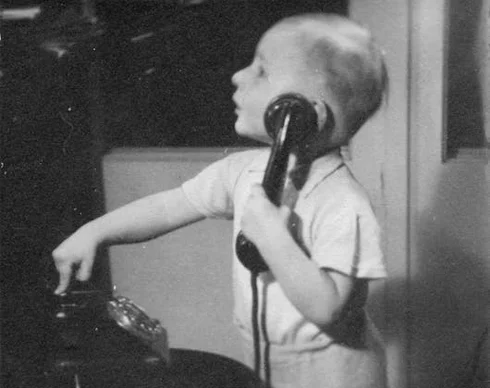
The moment the phone’s distinctive ring echoed through an empty house, you transformed from kid-with-a-peanut-butter-sandwich into Official Representative of the Household. Clearing your throat to sound older, you’d answer with your most mature voice, often with a formal household greeting: “Hello, Smith residence.” Your ability to take accurate messages using the pad and pencil kept specifically next to the phone determined your reputation as a reliable home-manager-in-training. Kids these days might still get to enjoy this particular mode of communication, as Axios reports that landlines are enjoying popularity among Gen Z members.
The true test came when bill collectors or your parents’ bosses called, requiring split-second decisions about whether to confess your parents weren’t home or to deploy the carefully rehearsed excuse: “They’re outside right now. Can I take a message?” Your heart raced when asked, “When will they be back?” forcing you into vague explanations that maintained the illusion of adult supervision. The confidence gained from successfully navigating these interactions convinced you that you could handle any interpersonal challenge—a conviction that lasted until the next awkward call.
3. Becoming a Culinary Inventor With Whatever You Found in the Pantry

The kitchen became your personal laboratory when adults weren’t around to enforce conventional food rules or proper meal compositions. Combinations that would never pass parental inspection—chocolate syrup directly on bread, cereal mixed with ice cream, or potato chips crushed into a sandwich—became gourmet inventions when you controlled the menu. Each creation carried a distinctive name, usually some variant of “supreme” or “special,” and you genuinely believed some of these concoctions were revolutionary enough to deserve wider recognition. The Lean Green Bean has some tips on how exactly to teach kids this essential task in a safe way.
The unspoken rule of solo dining was the perfect trifecta: maximum taste, minimum preparation, and minimal evidence left behind. You became adept at spot-cleaning just the utensils needed rather than washing a proper load of dishes, and knew exactly how to secure the cereal box so no one could tell it had been opened. These kitchen adventures weren’t just about breaking rules—they were about testing boundaries in a safe space, where the worst consequence might be a stomachache or, more commonly, the disappointing realization that chocolate chips and pickles weren’t the flavor sensation you’d anticipated.
4. The Forbidden Joy of Watching Television Shows Your Parents Would Never Approve
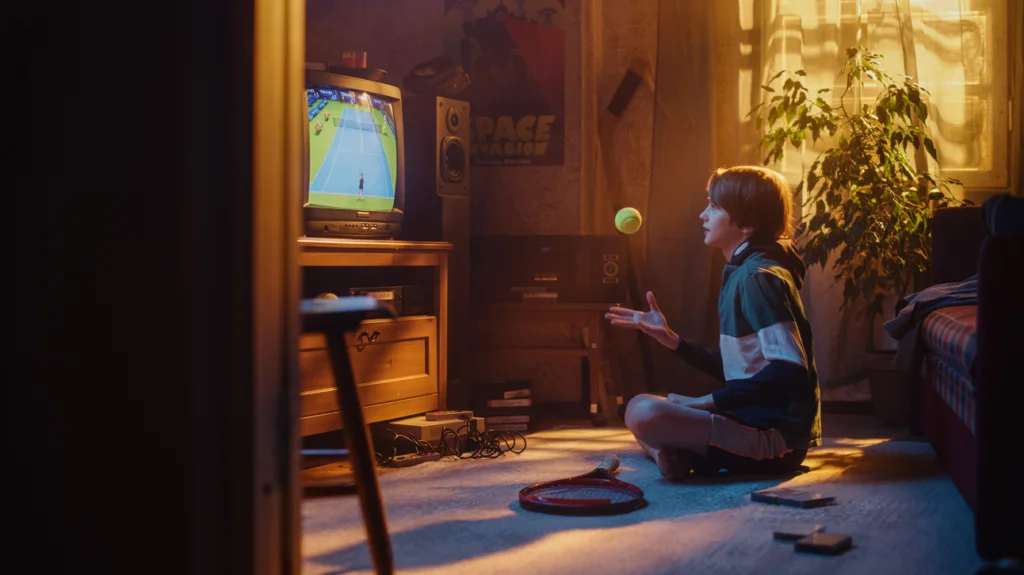
With parents safely away and the house to yourself, the television became a portal to forbidden content that was otherwise off-limits. Whether it was sneaking episodes of “Three’s Company” with its adult topics like drinking, to the latest soap opera with its complicated romantic entanglements, the contraband content seemed exponentially more entertaining precisely because it was forbidden. The volume stayed suspiciously low during these illicit viewing sessions, your thumb poised over the channel-change button like a gunslinger ready for a quick draw.
The real skill lay in remembering exactly which channel had been on when your parents left, positioning the dial precisely back to that station before their return. Kids with siblings developed complex blackmail immunity agreements: “I won’t tell about your forbidden TV show if you don’t tell about me using Mom’s perfume.” The thrill of these small rebellions provided perfect low-stakes practice for independence, complete with risk assessment, evidence management, and the development of a poker face when asked about your day.
5. The Thrill of Answering the Door With Full Discretionary Power
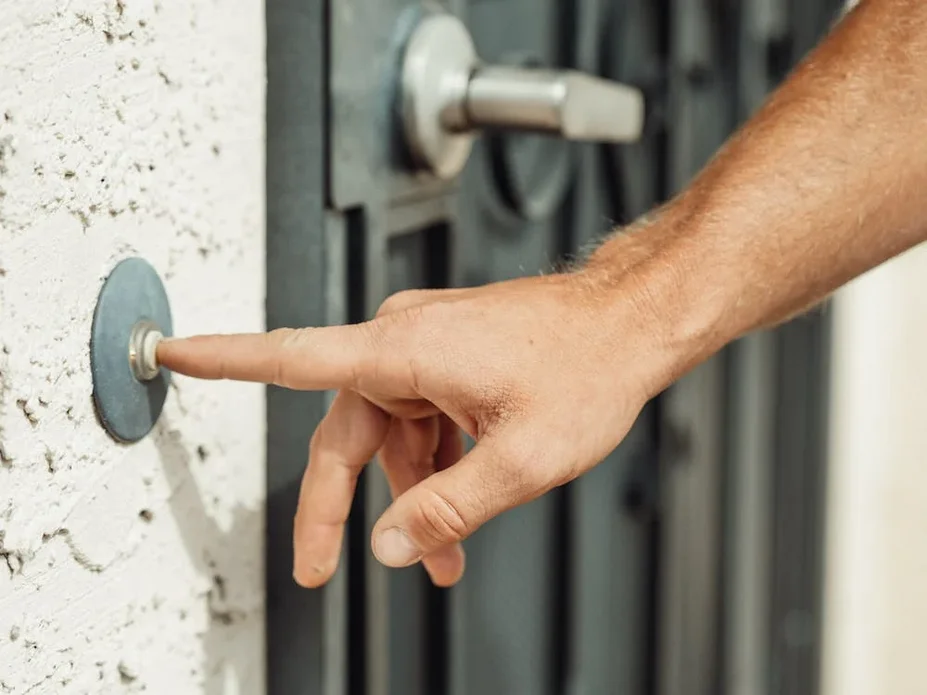
When the doorbell rang while you were home alone, you experienced the dual rush of authority and apprehension that came with deciding whether to acknowledge the visitor. Parents’ instructions usually involved some version of “don’t open the door to strangers,” but defining “stranger” became surprisingly complex when facing actual decisions. The mail carrier who came every day but whose name you didn’t know—stranger or not? The neighbor who wanted to borrow something—legitimate or suspicious?
You perfected the art of silent observation, peering through windows or peepholes to make executive decisions about visitor legitimacy. The power to reject adult visitors by simply not answering the door gave you a heady sense of control rarely experienced in other aspects of childhood. When you did choose to answer for someone deemed safe, you delivered your parentally-programmed line with Oscar-worthy casualness: “My mom’s in the shower right now,” or the classic, “My dad’s working in the basement”—establishing both your non-aloneness and your parents’ inaccessibility in one smooth fabrication.
6. Conducting Elaborate Investigations Into the “Secret Stuff” Your Parents Owned

Those mysterious boxes on high closet shelves, the locked drawer in your parents’ dresser, the cabinet that was usually declared “just boring paperwork”—all became targets for reconnaissance missions once adults left the premises. Armed with determination that would impress the FBI, you carefully documented the exact position of items before moving them, sometimes taking Polaroid photos or making pencil marks to ensure everything could be returned to its precise location. Time slowed to a crawl during these operations, your senses heightened to detect any unexpected return of authority figures.
The discovered items often proved disappointingly mundane—old photos, financial documents, or sentimental keepsakes—but occasionally you’d uncover something genuinely intriguing: love letters from before your birth, mysterious medical documents, or holiday gifts hidden ahead of schedule. The real prize wasn’t usually what you found but rather the successful execution of a perfect covert operation, leaving no evidence of your investigation. This cloak-and-dagger experience taught valuable lessons about observation, methodical process, and the crushing guilt that sometimes followed boundary violations—especially when you uncovered information you weren’t emotionally prepared to process.
7. Treating Minor Injuries With Dramatic Medical Self-Care

A scraped knee or small cut became an opportunity for playing both patient and doctor when no adults were present to provide proper perspective. With access to the forbidden treasures of the medicine cabinet—bright red Mercurochrome that stained like evidence, stinging rubbing alcohol that surely meant it was working, or coveted Band-Aids that were usually rationed—you could transform minor injuries into major medical events. Each self-administered treatment followed exaggerated protocols you’d observed during doctor visits, often narrated aloud to an imaginary medical team.
The real skill was in injury assessment: determining which wounds merited calling the emergency contact number versus which could be handled independently and never mentioned. Scabs and small cuts were typically managed in-house, while anything involving persistent bleeding, possible broken bones, or injuries to the face entered the gray area of judgment calls. The pride in successfully handling your own medical care created a powerful sense of self-reliance, even when your treatment methods occasionally involved unnecessary amounts of gauze or creative applications of butter to burns (before we knew better).
8. Hosting Improvised Gatherings That Expanded in Size and Volume

The simple instruction to “not have friends over” often underwent creative reinterpretation to mean “not too many friends” or “only your best friend” or eventually “just people who won’t make a mess.” What began as one buddy stopping by could evolve into a spontaneous gathering as word spread through the neighborhood grapevine that there was an adult-free zone available. The collective energy of multiple unsupervised children generated noise levels that seemed reasonable from the inside but apparently carried for blocks, according to later parental reports.
The sophisticated alert systems developed to manage these gatherings would impress military strategists—kids stationed as lookouts, coded warnings, and emergency cleanup procedures triggered by specific signals. The pre-parental-return scramble became a choreographed panic as evidence was hidden, extra cups disappeared into backpacks, and visitors vanished through back doors. The acceptable number of unauthorized guests varied by household culture, but the universal constant was the innocent face that greeted returning parents, casually mentioning “Jimmy stopped by for just a minute to borrow a book”—while three more friends crouched silently behind the fence in the backyard.
9. Conducting Mad Scientist Experiments Without Oversight or Safety Protocols

The combination of boredom, curiosity, and access to household chemicals produced a generation of impromptu scientists testing hypotheses that would horrify modern safety experts. The kitchen became a laboratory for mixing baking ingredients with bath products, the garden a testing ground for magnifying glass solar studies, and the bathroom sink a perfect location for discovering what happened when toothpaste met peroxide. These experiments rarely began with destructive intent but often ended with valuable lessons about chemical reactions, flammability, or the permanence of certain stains.
Cleaning up evidence of failed experiments taught creative problem-solving and the properties of various household substances—vinegar neutralized some disasters, while baking soda addressed others. The most successful young scientists learned to conduct experiments in locations where results could be easily hidden: sinks that drained, surfaces that could be wiped clean, or outdoor locations where evidence would naturally degrade. When experiments produced visible damage, you learned the art of strategic furniture rearrangement—positioning chairs or rugs to cover mysterious new marks while developing cover stories about how “that spot on the carpet was definitely always there.”
10. Answering Check-in Phone Calls With Academy Award-Worthy Performances
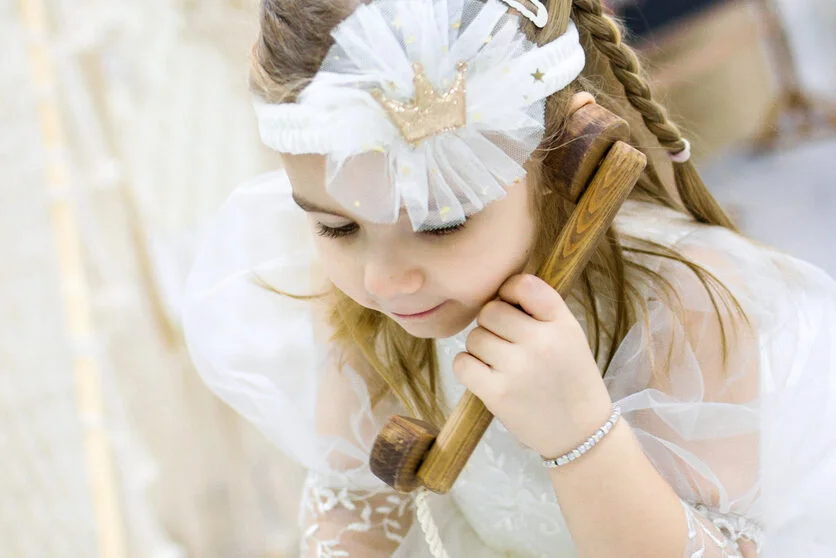
The midday call from a parent “just checking in” required instantaneous acting skills as you crafted an audio illusion of appropriate home-alone behavior. Background noise management became critical—television volume adjusted down but not muted (suspicious), any unauthorized visitors shushed with violent hand gestures, and illicit activities paused while maintaining a conversational tone suggesting you’d been quietly reading educational materials all along. Your voice modulated to convey both competence and compliance, assuring parents that yes, you had eaten lunch, and no, there were no problems whatsoever.
The perfect performance included casual questions about when they’d return (establishing your eagerness for family reunion rather than calculating cleanup timeline) and at least one responsible detail, such as mentioning you’d taken out the trash or fed the pet. The most sophisticated operations included prepared talking points established before parents left: “I finished my book report” or “I practiced piano for 30 minutes” served as convincing evidence of productive solitude. The true art was not overplaying your hand with excessive virtue claims that might trigger parental suspicion—believability rested in the perfect balance of accomplishment and ordinary childlike activities.
11. Making and Abandoning Ambitious Household Improvement Projects
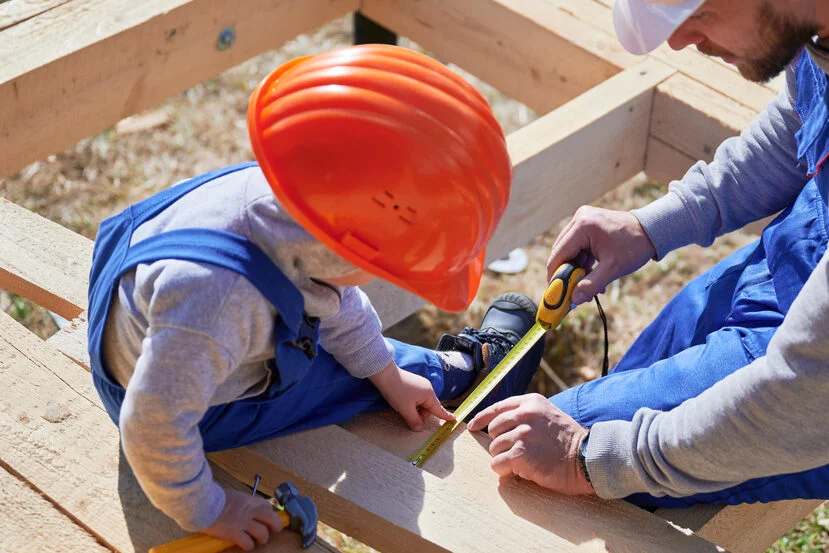
The combination of unsupervised time and access to tools frequently inspired home improvement ambitions far beyond your skill level or attention span. What began as a simple desire to “organize” your closet could escalate into emptying the entire contents onto your bed, attempting a complete categorization system, and then abandoning the project midway when more interesting opportunities arose. Similarly, furniture rearrangement schemes, backyard construction projects, or “helpful” kitchen reorganizations often reached a point of no return before you realized the complexity of your undertaking.
Parents returning home to find half-completed projects learned to ask the dreaded open-ended question: “So what were you trying to accomplish here?” Your explanation inevitably included the phrase “I was just trying to help” while standing amid chaos that would take hours to restore. The genuine surprise you felt at adults not appreciating your initiative taught important lessons about project planning, completion timelines, and the importance of restoring baseline order before embarking on improvements. The most valuable skill developed through these abandoned ambitions was the ability to recognize when a project had exceeded your capabilities—even if this recognition typically came several hours too late.
12. The Mysterious Time Warp That Occurred Shortly Before Parents’ Return

The final hour before expected parental return triggered a temporal anomaly where time accelerated exponentially compared to the leisurely hours earlier in the day. Suddenly aware of evidence that needed hiding, promises that remained unfulfilled, and household states that required restoration, you entered a panicked time-management phase that bore little resemblance to your previous relaxed approach. The measured pace of solo cereal consumption or television viewing contrasted sharply with the frantic final countdown activities—dishes hastily washed, couch cushions returned to their proper configuration, and personal grooming addressed to eliminate signs of questionable activities.
This time compression phenomenon produced remarkable efficiency as you accomplished more cleaning in twenty minutes than you might normally complete in an entire supervised afternoon. The psychological transformation from “lord of the manor” back to “responsible child” required not just physical evidence management but also an attitude adjustment—the confident rule-maker becoming once again the rule-follower. That brief window between hearing the car in the driveway and the key in the lock represented the most intense moments of the home-alone experience—a final chance to scan for overlooked evidence, compose your facial expression, and prepare the casual greeting that suggested today had been completely ordinary and uneventful in every possible way.
Looking back on those unsupervised hours from today’s perspective, it’s easy to recognize them as more than just fun breaks from adult supervision—they were critical training grounds for independence. The problem-solving skills, decision-making practice, and self-reliance developed during those afternoons shaped a generation that understood both freedom and responsibility. While today’s more structured childhoods certainly offer their own advantages, there remains something uniquely valuable about those unmonitored moments when children discovered their own capabilities, tested boundaries in relatively safe environments, and yes—occasionally made spectacular messes both literal and figurative. Perhaps the greatest gift of those 1970s home-alone afternoons wasn’t the freedom itself, but the message it conveyed: “We trust you to handle this.”


